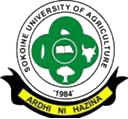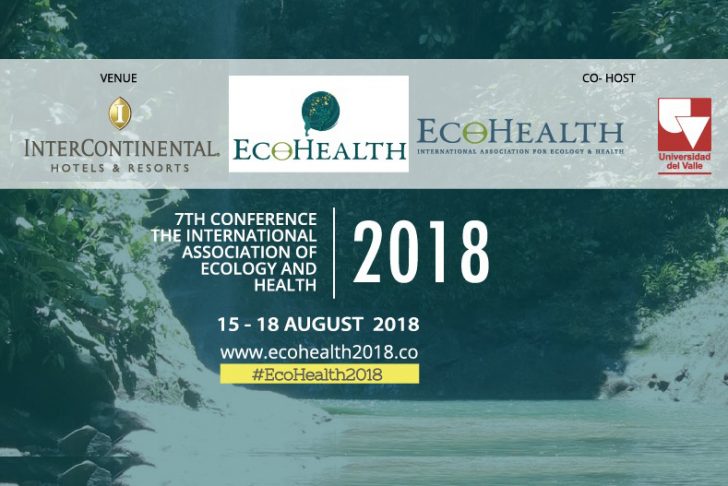The Ecohealth 2018 Scientific Programme Committee welcomes the submission of original contributions for oral and poster presentation at the Congress.
DEADLINE: 31 January at 24:00 GMT -5
Abstracts received after this date will not be considered.
Instructions to authors
Carefully read the guidelines below before submitting your abstract. Acknowledgement of the receipt of your submission will be sent to the corresponding author’s e-mail address immediately upon submission. If you do not receive the confirmation e-mail, please do not submit the abstract again, instead please contact the Abstract team at abstracts@ecohealth2018.co for advice.
Submission guidelines
- Abstracts can only be submitted electronically through the Conference website.
- You are allowed to be the presenting author of more than one abstract.
- You are allowed to be a co-author of more than one abstract.
- Submission of similar abstracts from the same group is discouraged.
- Abstracts will only be considered for presentation if they are not published or submitted for presentation elsewhere.
- For audiovisual material please upload your video to a video sharing website (youtube, vimeo, dailymotion), submit a short introduction to your video and a link to the website (e.g. https://www.youtube.com/watch?v=uS0ifJY-9Zo)
Abstract language and length
Abstracts and audiovisual material must be sent in English or Spanish. The maximum length allowed for an abstract is 500 words and for audiovisual material, the total duration, including title and credits, must not exceed 10 minutes. The abstract title, keywords and the author(s) or names of institutions are not included in the count of 500 words.
Abstract structure and content
In order to make the abstract as informative as possible, please include a brief statement of the purpose of the study, the methods used, the results, and the conclusions. It is inadequate to state “The results will be discussed” or “The data will be presented”. You may entitle the sections as follows: Introduction, Objectives, Results, and Conclusion.
Presentation formats
Accepted abstracts selected by expert reviewers will be presented in any of the following sessions: Oral Abstract Sessions, Poster Sessions and Video Sessions. Authors can indicate their preferred type of presentation in the provided space. In addition, authors should indicate the thematic area (see Abstract Topics) their abstract should be assigned to. Please note that the final decisions regarding the allocation and the type of presentation of the submitted abstract (oral o poster) will be made by the Scientific Programme Committee.
There are 2 categories of videos presentation:
- Video abstract: A video abstract is the motion picture equivalent of a written abstract. Video abstracts help the viewer to get a quick overview on a scholarly paper, research article, thesis or review: and to quickly ascertain the purpose and results of a given research.
- Documentary: A documentary film is a nonfictional motion picture intended to document some aspect of reality, primarily for the purposes of instruction, education, or maintaining a historical record.
Abstracts topics
- Healthy food and water for all:
- Food security and sovereignty
- Improved nutrition
- Agroecology and sustainable food production
- Food regimes
- Food sociology and anthropology
- Water accessibility, quantity and quality
- Sustainable management of water
- Climate impacts, ecosystems and health
- Inclusive, safe, resilient, sustainable and healthy cities
- Adaptation and mitigation strategies
- Health co-benefits of climate change actions
- Sustainable use of ecosystems
- Sustainable energy and climate justice
- Biodiversity
- Sustainable Urban Environments in developing countries
- Changing the trend: affronting the challenge of building peace with social and environmental justice
- Peace building processes and health
- Healthy life, wellbeing and alternatives to development
- Conflicts and environmental justice
- Peaceful and inclusive societies
- Education and social movements
- Inequality based on class, race and gender/intersectionalities
- Mining, health and social conflicts
- Making ecohealth count: networking, public policies and educational experiences
- Training on ecohealth, successful experiences and challenges
- Networking experiences in Ecohealth, Successes and challenges
- Using ecohealth in decision making process
Notification of acceptance
Notifications of acceptance or rejection of the abstracts from the regular submission will be announced in early March.
The corresponding author receives all correspondence concerning the abstract and is responsible for informing all co-authors of the status of the abstract.
With the notification of acceptance, abstract presenters will be informed about the time and date of their presentation, and are asked to reconfirm their attendance.
For more information, please visit here







